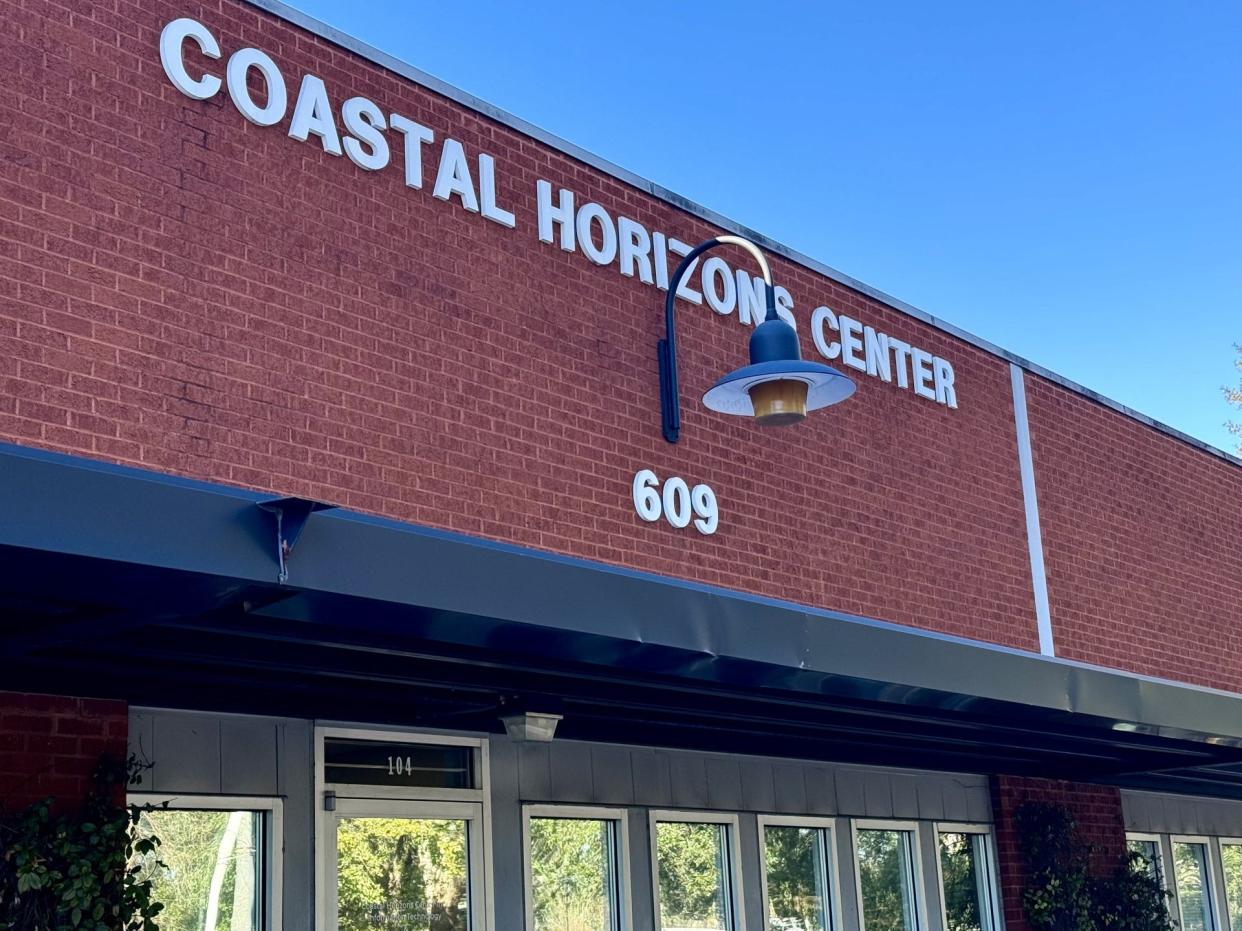In Wilmington, mental health needs spike for youth. Here's what to know.

In recent years, there has been a notable increase in young people seeking mental health treatment in Wilmington, mental health professionals say.
Coastal Horizons Center, a substance use, mental health, and care integration services provider, currently serves approximately 7,500 clients annually within the Cape Fear region -- a figure that has seen a slight uptick over the past five years. But it's been the rise in youth patients that's particularly noteworthy.
"We went from really serving a small amount of youth to over 40% of that 7,500 that we are serving in New Hanover are youth," Ryan Estes, chief operating officer for Coastal Horizons, said. "That has probably been our biggest growth area in the last decade."
Joseph Rengifo, psychotherapist with Wilmington Mental Health, was asked whether he had witnessed a similar increase in youth patients. He said "definitely," emphasizing the complicated nature of the observed increase.
What contributed to this shift? What lingering barriers to access still persist? And what could Wilmington be doing better?
Heightened awareness and accessibility for youth

A combination of factors has likely led to the rise in youth seeking treatment.
"I think there is an increased awareness of services in the community," Estes said, crediting Coastal Horizons' holistic approach to addressing family needs as a contributor to this shift.
"We work closely with the school system," Estes said. "We also have a federal grant for mental health awareness training where we work with educators and other community citizens to recognize what those early warning signs of a child might look like."
Rengifo agreed that awareness and accessibility have played a role in the shift.
"I don't think we have more people who have mental illness," Rengifo said. "I think we have more awareness and people are looking for more services."
Previously, many children accessed support from their school counselors or social workers, but as demand increased, they were referred to other outside providers more frequently, Rengifo said.
"Now the process has been facilitated," Rengifo said. "Whether that is because the school understands...and they are open to that idea more than before, or because the parents have become more mindful about (their children's) mental health and they're taking them to (counseling) more often."
Societal demands and housing instability
To what extent can the rise in those seeking treatment be attributed to the current social and economic climate of the United States?
Coastal Horizons continues to see an increasingly younger population struggling with anxiety and depression, Estes said.
"You talk to a person that's in here that's 30 and they're like 'I don't have the same opportunity to be successful as my parents,'" Estes said. "Now we start talking about failure to thrive...and we start to pathologize them versus looking at like what's happening in that community that may be societal demands making them feel less successful."
Housing instability has played a pivotal role in fueling this phenomenon, Estes said.
"I think in our community, as housing becomes less and less realistic, we see people that...might present as depressed or anxious, but how much of that is just a normal reaction to living on a thread-bare income?" Estes said.
The issue extends beyond individual cases and requires community-wide attention to address effectively, Estes said.
"The rule of thumb to me is when your EMS or your teacher can't afford to live in your community, then it's no longer affordable," Estes said. "As we...use that as a barometer of 'how do we create a community that...the people really serving this community can be successful in?' I think that we'll start to see people thriving versus struggling with anxiety and depression."
Medicaid expansion and reducing barriers to access
In January of 2024, expansion in Medicare and Medicaid increased accessibility to mental health treatment for Americans facing affordability barriers, Estes and Rengifo said.
"We have seen people who have historically not been accessing care because of insurance barriers starting to come in since January," Estes said. Coastal Horizons has also been working to address other barriers to access.
"We changed our approach to become much more of what we call an open access clinic, so people can walk in and get services same day," Estes said.
Within the last month, Coastal Horizons has also expanded its service hours into the evening from 5-8 p.m.
Like Estes, Rengifo underscored the importance of the Medicaid expansions.
The people "who are able to qualify for Medicaid, that's (where) we experience an increase," Rengifo said. "I'm talking about maybe having five to ten people a week in the past two to three years, and last year (and this year) we have maybe 60 to 70 of them."
Rengifo said occasionally services are provided at a reduced-cost or pro bono to patients who are unable to afford them otherwise.
Apart from cost, Estes and Rengifo highlighted numerous other barriers to access, including transportation limitations, linguistic barriers, societal stigma and more. Communities of color have also historically faced barriers to access.
Veterans, elderly, people struggling with substance abuse and postpartum women are also vulnerable demographics.
What more can be done in Wilmington?
Wilmington can enhance community support and raise awareness about mental health and available treatment options.
"I would say that maybe the city should invest in advertisements...helping people become educated about receiving...mental health services," Rengifo said. "We have all these festivals in town, but we don't have a mental health awareness activity that is done yearly...and I think we should do something more about that."
Wilmington should also strive to improve the overall well-being of the community by expanding access to entertainment, exercise, healthy activities and essential resources, Rengifo said.
Estes agreed that addressing mental health should be a community-wide initiative.
"Everyone in our community can address it," Estes said. "It could look like that they get mental health training; it could look like they donate to a non-profit that needs it; it could be that they're checking on a neighbor or loved one that they haven't heard from...it takes all of us."
This article originally appeared on Wilmington StarNews: Youth in Wilmington, NC, seeking mental health treatment on the rise

